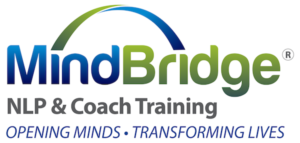The Meta Model distinctions fall into three natural groupings:
- Gathering Information – for Recovering Deletions
- Ill-Formed Statements – for Re-evaluating Distortions
- Limits of the Speaker’s World Model – for Clarifying Generalizations
Gathering Information refers to gaining, through appropriate questions and responses, an accurate and full description of the content being presented. This process assists in asking specific questions to reconnect the speaker’s language with his or her experience.
There are five sub-distinctions in this category (Deletions):
- Simple Deletions
- Comparative Deletions
- Unspecified References–Vague Subjects
- Unspecified Verb–Vague Actions
- Abstractions (Nominalizations)
Ill-formed Statements make up the second group of distinctions. The value of recognizing semantically ill-formed sentences is that you are able to assist the person in identifying the portions of their map that are distorted in some way, thus enriching the experiences which are available to them. By changing those portions of their map which are distorted, a person achieves greater choice and freedom. It is these distortions which frequently stop the person from acting in ways they would otherwise choose to act.
The four classes of ill-formed statements (Distortions) are:
- Cause and Effect
- Mind Reading
- Missing or Lost Evaluator
- Complex Meanings (Equivalence)
Limits of the Speaker’s World Model is the next grouping. These distinctions identify limits and, by challenging them appropriately, you can assist a person in enriching and expanding their model of the world.
The three distinctions in this category (Generalizations) are:
- Universal Statements (Also referred to as Universal Quantifiers)
- Mode of Operating of Necessity (Also referred to as Modal Operator of Necessity)
- Mode of Operating of Impossibility (Also referred to as Modal Operator of Impossibility)
